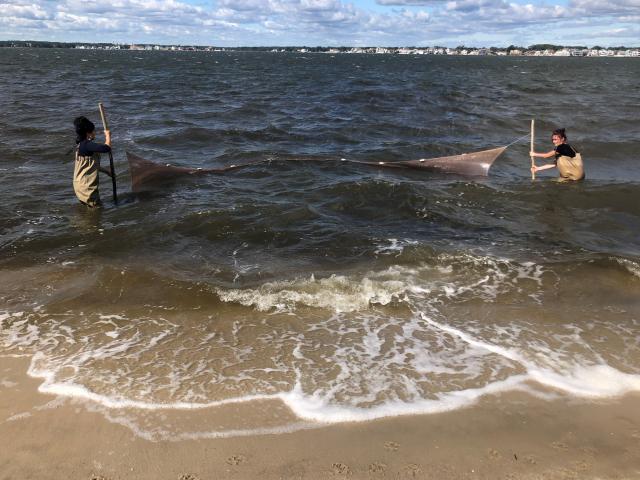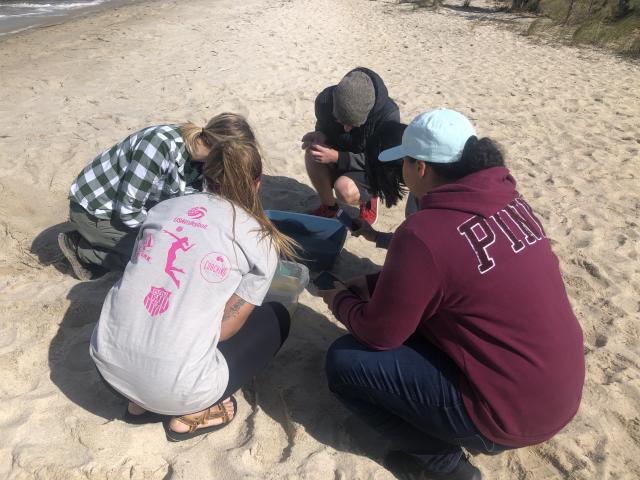Environmental Biology Students Study Different Ecosystems at Kean Campuses Across New Jersey

Students do hands-on fieldwork in Kean's Environmental Biology program. Here, students catch fish to identify and throw back.
Environmental biology students at Kean can now study marine, forest and urban ecosystems across the University’s three campuses in New Jersey.
The University rolled out new classes in environmental biology down the shore at Kean Ocean in Toms River and at the new Kean Skylands campus in rural Jefferson in Morris County this semester.

“Kean is in the unique position of offering the environmental biology concentration three different ways — with marine biology-focused courses at Kean Ocean; forest ecology and wildlife-focused courses at Kean Skylands; and urban ecosystem courses at Kean’s main campus,” said Daniela Shebitz, Ph.D., executive director of Kean’s School of Environmental and Sustainability Sciences.
“This offers our students an unparalleled opportunity to understand how complex New Jersey is as a state, in terms of its ecology. There are very few universities that will have these type of opportunities, especially in one of the most densely populated states.”
Students get intensive, hands-on fieldwork experiences in the program. At Kean Ocean, students wade into Barnegat Bay for research, conduct field work at Island Beach State Park and learn about coastal conservation. At Skylands, students go into the forest to study soil, water, animals and plants to lay the foundation for long-term ecological monitoring.
Kean has offered environmental biology, which is a concentration within the biology major, at its Union campus for about seven years. Students can now take courses at all three campuses if they choose.
Lecturer Nancy LaFleur, Ph.D., taught biodiversity assessment at Kean Ocean this fall. Her students conducted two field projects, including one where they designed and conducted a project examining differences in mollusk diversity on the ocean and bay sides of Island Beach State Park.
“The experience of being out in the field is invaluable to students,” LaFleur said.
Many classes at Kean Ocean and Kean Skylands are offered once per week, as multi-hour labs, to minimize traveling between campuses.
“The new environmental biology courses broaden the offerings that Kean provides. Students actually get a feel for what real fieldwork entails and learn to develop practical problem-solving skills,” said Jessica Adams, Ph.D., acting associate dean at Kean Ocean. “By taking advantage of the different environments surrounding our Kean campuses, we are helping students connect directly with the work they plan to do in their future careers.”
Studying environmental biology can prepare students for careers related to environmental conservation or research, such as working for park systems or environmental agencies; at aquariums, zoos or botanical gardens; and as environmental consultants or educators.
“Our goal is that by the time students graduate, they’re already experienced in ecological research in different environments and have a strong foundation that enables them to enter the workforce or further their education in graduate school,” Shebitz said.
Student Victoria Rekemeier of Toms River, a junior majoring in environmental biology, graduated from Ocean County College prior to attending Kean Ocean. She said she ultimately hopes to work with animals or environmental conservation.
“I’m just really happy being on this path and seeing what doors can be opened with this degree,” she said. “This program is important given the current struggles in our world. We only have one planet and students like my peers and I want to do whatever we can to save it.”